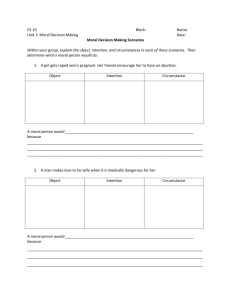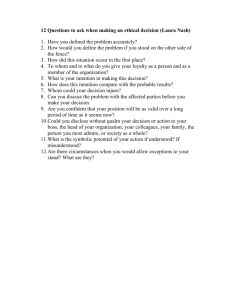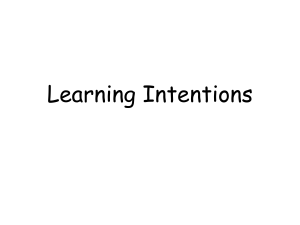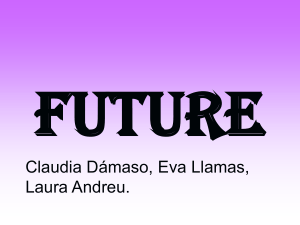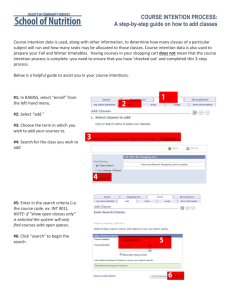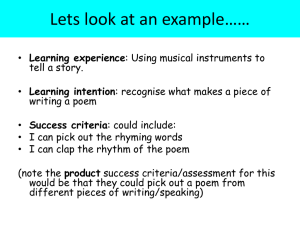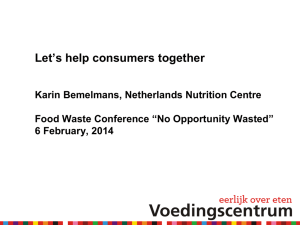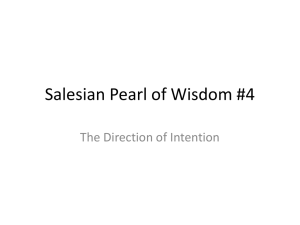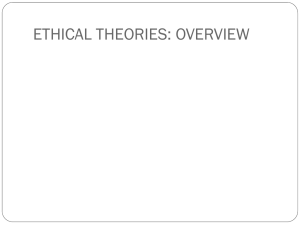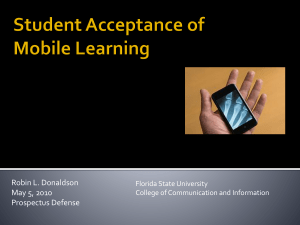Object, Intention and Circumstance
advertisement
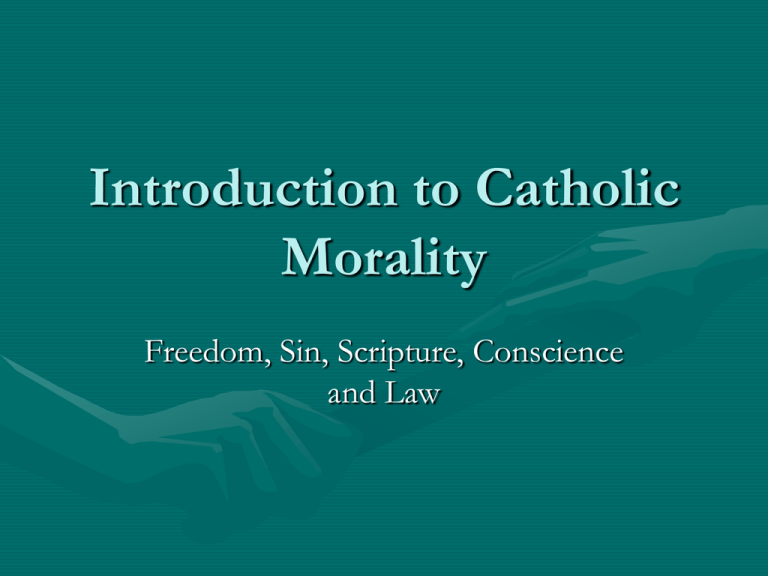
Introduction to Catholic Morality Freedom, Sin, Scripture, Conscience and Law Making Moral Decisions • 1. Object: What will I do? • 2. Intention: Why? What is the motive? What is the intended outcome? • 3 Circumstance: What is the situation? What were the actual circumstances? • Does my action have a positive object, intention and circumstance? Object • • • • • Actions: Express who we are Make us who we are Impact the world around us “The morality of the human act depends primarily and fundamentally on the “object” rationally chosen by the deliberate will.” Splendor of Truth JPII Intention • Why am I doing this? • Effects culpability but not the quality of the act • Two rules govern intention: • 1. Keep the intention good • 2. The end does not justify the means—my good intentions cannot make an evil act good. Circumstances • What is going on in the midst of this decision? • Effects culpability but not the quality of the act • Circumstance can make us guilty of choosing not to act when we have the opportunity. Object, Intention and Circumstance • Create examples of moral acts when given a description of the act in terms of its three elements (1750). For example: – – – Negative object, positive intention and circumstance. Positive object and intention made negative by circumstance. Positive object made negative by intention. Brief Summary of STOP Process: • This unit will explore the STOP method of making a moral decision. • This Method includes: • Searching for the object, intention, and circumstances; • Thinking about alternatives and their probable consequences; • Others-Who will this effect? Who should I consult? • Praying for guidance. SEARCH S-SEARCH What are my options? What is the moral object? What action do I want to take? What are my motives? My intentions? What are the reasons for my choice? What are the circumstances? THINK T-THINK What are my alternatives? Is there any less harmful options that I should consider? What are the possible and probable consequences of each action? What would be the effects on the world if everyone chose this object? OTHERS O-OTHERS—Consider and consult What might be the effects of my decision on others? What does the church teach about this issue? (Exactly, with references) What does scripture say? What do other trusted adults say and friends say? Are they objective? PRAY P-PRAY What type of prayer would be appropriate? With whom? What would you need to pray for? Three questions to ask: • Would I want what I am doing done to me? • Would I be proud to do this in front of my parents, teachers, etc… • Would I want my action to be broadcast on the evening news? Aristotle/Virtue Ethics Kant/Deontology Mills/Utilitarianism Locke/Rights Theory Object—Intention--Circumstance • Ellen is an attractive 19 year-old female. She wants to be a pediatrician and has been accepted to med school. Unfortunately, she does not have the money she needs to go to school. She has a friend who dances at a topless bar to cover her tuition expenses. Although this is legal, is it moral? Aristotle/Virtue Ethics Kant/Deontology Mills/Utilitarianism Locke/Rights Theory Object—Intention--Circumstance • I am a senior in high school. My close friend uses drugs frequently and I am afraid for him. I have talked to him repeatedly, but he will not change. I want to tell on him so that he can get the help he needs. The problem is that he has applied for several college scholarships, and I am afraid that he will lose them if he is suspended or expelled. Aristotle/Virtue Ethics Kant/Deontology Mills/Utilitarianism Locke/Rights Theory Object—Intention--Circumstance • Jane has been trying to have a baby for several years and is now finally pregnant. She says that she really wants her baby, yet she has decided to do amniocentesis to test for any fetal defects. She claims that should the tests indicate any abnormality, she is going to abort, even if it means doing so well into her second trimesters. What do you think of her decision?
